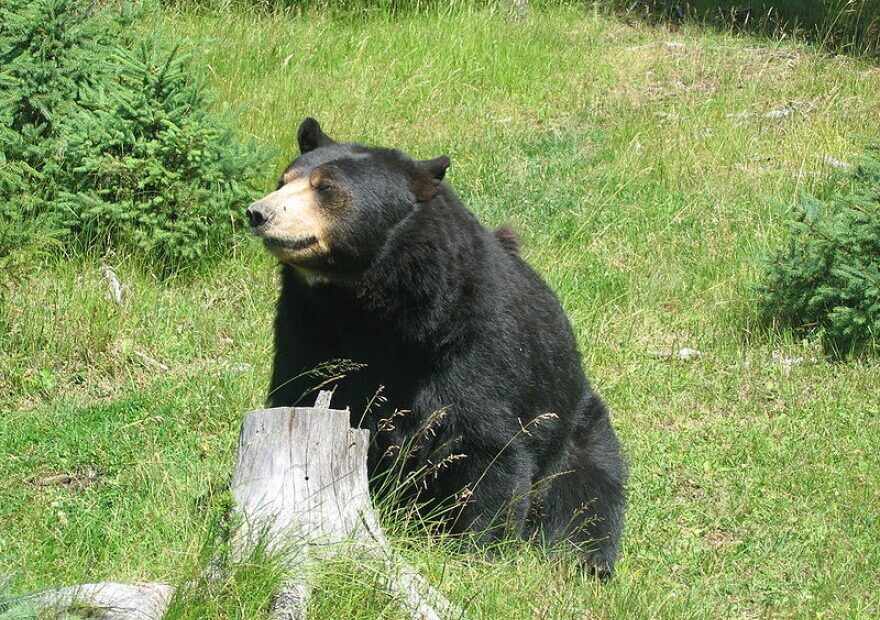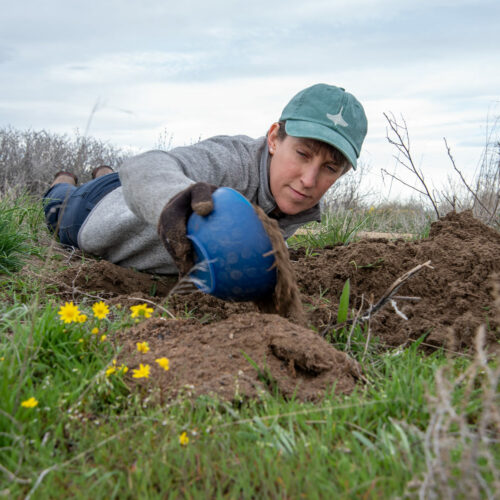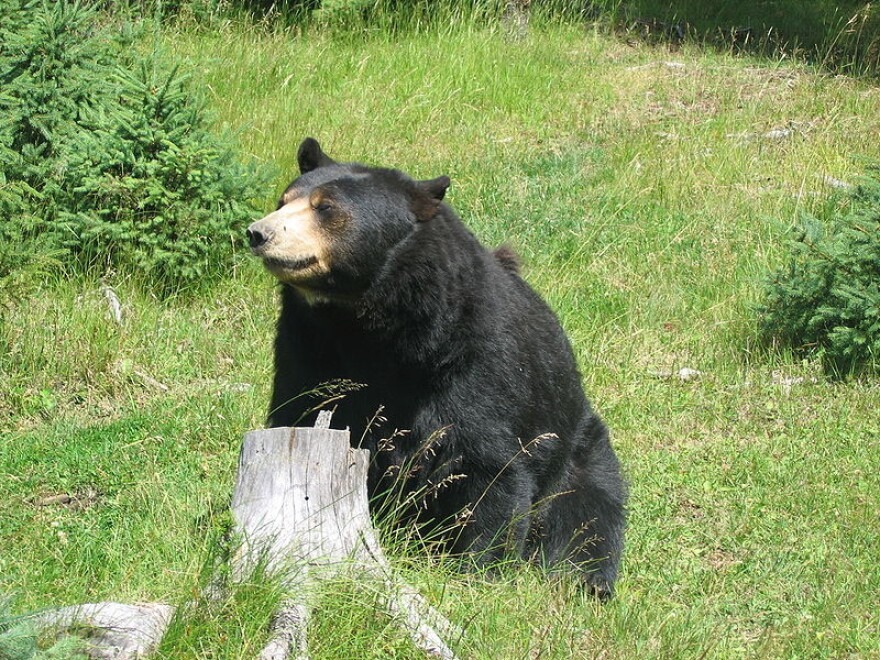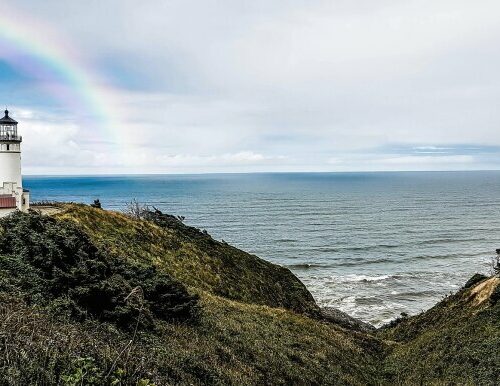
Controversial Spring Bear Hunt Up For Debate In Washington
READ
The Washington Fish and Wildlife Commission will hear a report Friday on potential changes to the 2022 spring bear hunt season.
However, several conservation groups said special permits to hunt black bears in the spring should not be issued at all. The groups said the hunts cruelly kill bears just as they’ve emerged from hibernation with cubs in tow.
“There’s a reason why we don’t hunt any other species during the spring – other than turkeys – because spring is an important time for all species in which they’re recovering from the winter,” said Claire Loebs Davis, board president, Washington Wildlife First, a conservation group.
After hibernation, Loebs Davis said, bears are on the verge of starvation, making the bears sluggish, slow and easy to kill.
“Starvation is forcing them into clearings and in areas where the only food is available – where they are easy for hunters to find and shoot,” she said.
As bears emerge from their dens in the spring, limited food is available, said Fish and Wildlife Department spokesperson Sam Montgomery, which means the bears will search for anything they can find from pet food to garbage to fruit in trees.
The bears’ hungry search for food can damage harvestable timber, Montgomery said, which is one reason for the spring bear hunt.
“They will strip bark from trees to gain access to the sugary layer underneath the bark. Very often the bark stripping and consumption of the inner layer causes damage to the tree, lessening or eliminating the timber value,” Montgomery said.
The proposed rule would allow for special permits for 644 people to hunt black bears in the spring. The department estimates hunters would kill around 145 bears. In Washington, hunters are allowed to kill two bears per year, with the special permits counting toward that limit.
The department is accepting written comments through Thursday. The Washington Fish and Wildlife Commission will hear oral public comments on Friday. A decision is expected on the proposed rule change at its November meeting.
Eight states allow for spring bear hunts. Permitted spring bear hunts are allowed in Oregon. Similarly, permitted spring bear hunts are allowed in Idaho, along with approved baiting.
In Washington, Montgomery said, the spring black bear permits address management needs, including tree and property damage and human-bear conflicts.
Washington’s spring bear season began in 2002.
However, conservation groups said spring bear hunts hurt Washington’s bear population as a whole.
For example, hunters are allowed to kill one bear in the spring, including lactating sows, said Sophia Ressler, staff attorney with the Center for Biological Diversity.
“It leaves those cubs orphaned,” Ressler said. “They’re going to die without their mothers. They are way too young to fend for themselves.”
Moreover, she said, bear populations are slow to reproduce.
In Oregon, killing a sow with cubs less than one year old is illegal, as is killing a cub less than one year old. In Idaho, it’s illegal to kill a female black bear with its cubs. In Washington, the department encourages hunters not to kill lactating female black bears.
To learn more about spring hunts in Washington, the Fish and Wildlife Commission mandated in November 2019 that hunters submit bear pelts, skull and sex identification for inspection.
This will identify whether female bears were lactating before they were killed, said Anis Aoude, Fish and Wildlife Department game division manager, at a commission meeting in 2019.
Pelt data on lactating females and potential cubs, Aoude said, will give the Fish and Wildlife Department better information to manage the spring bear hunt.
Last year, the department canceled the inspections because of the pandemic, Montgomery said, making the 2021 season the first time hunters have reported that information to the department. The department is still analyzing preliminary data on inspections, Montgomery said.
Idaho also requires hunters to submit bear pelts, skulls and sex identification. In Oregon, hunters are required only to submit bear skulls for inspection, although the state department of fish and wildlife paused that requirement during the pandemic.
Ressler said she’s concerned there isn’t more information on Washington’s black bear population, which she said are vital to ecosystems.
“There’s kind of a cascading effect for large carnivores,” Ressler said. “Including things like trampling down certain parts of the forest and the food web that they exist in.”
In addition to concerns about black bears, the conservation groups raised concerns about the transparency of the process to approve spring black bear hunts.
Last December, during a tension-filled commission hearing, conservationists called for an end to the special spring permits.
However, commissioners said the rule change was meant to approve amendments to the hunt, including season dates, permit numbers, and inspection data clarifications.
The December meeting was not a hearing on the hunt itself, said commissioner Don McIsaac. However, eliminating hunts could be a legitimate consideration for the commission, he said.
“I wonder if those folks who did not think that question was on the table even showed up today,” he said.
Commissioner Barbara Baker agreed that questions about the spring bear hunt should be considered. She noted finding a correct venue and time to discuss the hunt could be a struggle.
A year later, conservation groups said the commissioners never had those discussions.
“It’s nothing short of a betrayal of the public to whom they made a promise last year to force this issue forward without having done any analysis,” Loebs Davis said.
Public information is essential to thoroughly evaluate whether the spring bear hunt is justified, Loebs Davis said.
At least 12 conservation groups requested a delay to the scheduled public hearings on the spring bear hunt. The groups would like the hearing to take place after the Fish and Wildlife Department and commission study whether the hunt should continue.
However, conservation activist Martha Hall said she believes it’s unlikely the commissioners will delay 2022 spring bear hunt. Hall unsuccessfully sued the department to stop the 2021 spring bear hunt season.
“The most I have always asked for from this commission is that they take the time to look into
all of the issues,” Hall said. “I think if they did, they might not vote to have these hunts. This is their job, to provide oversight – not to just rubber stamp whatever department staff proposes.”
Related Stories:

Kennewick finds ‘forever chemicals’ in its drinking water for the second spring in a row
For the second spring in a row, Kennewick has found “forever chemicals” in its drinking water that are above Washington state’s standards.

Ecologists help with burrowing owl ‘spring cleaning’ at Umatilla Chemical Depot
Lindsay Chiono, wildlife habitat ecologist for the Confederated Tribes of the Umatilla Indian Reservation (CTUIR), does some seasonal maintenance, or spring cleaning, on one of the 180 total artificial nesting

US Forest Service employees return to work after mass terminations
Katijo Maher, president of a local chapter National Federation of Federal Employees, stands next to a fire danger sign Tuesday in Leavenworth. Maher said she has 37 years of experience
















